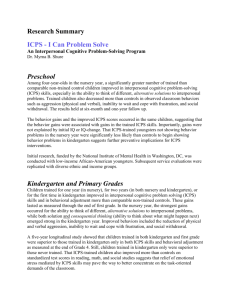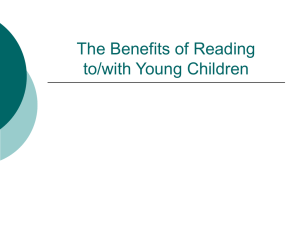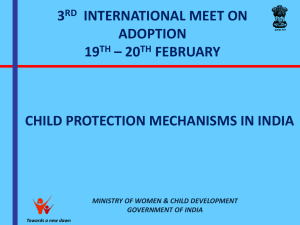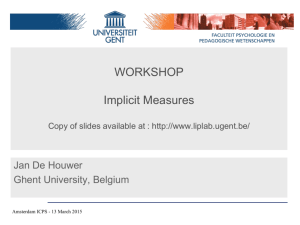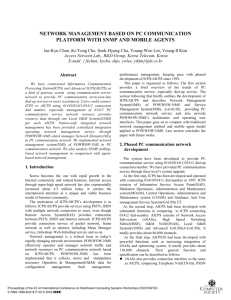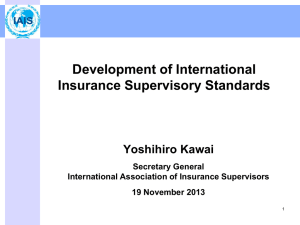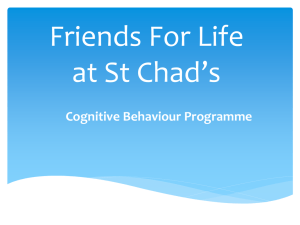I Can Problem Solve (ICPS) Training
advertisement
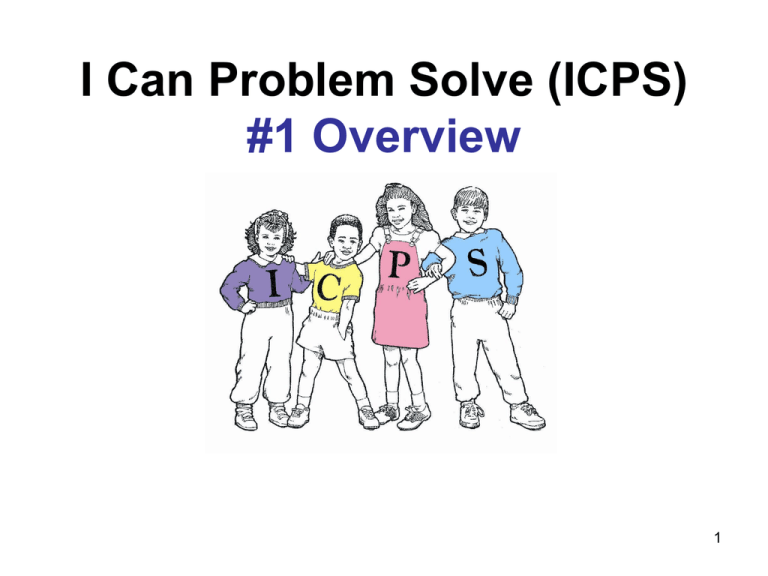
I Can Problem Solve (ICPS) #1 Overview 1 Goal of ICPS To teach children thinking skills that can be used to help resolve or prevent “people” problems. 2 Focus of ICPS • Teaches children how to think, not what to think. • Guides children in thinking for themselves. • Teaches children how to evaluate their own ideas. • Encourages children to come up with solutions to problems on their own. 3 ICPS Curriculum • Manuals focus on 3 specific age groups: – Preschoolers (ages 3 to 5) – Kindergarten & Primary Grades (K - 2nd) – Intermediate Elementary Grades (3rd - 6th) There are also parent resources: Raising a Thinking Child Workbook, Raising a Thinking Child, Raising a Thinking Preteen 4 ICPS Method ►Teaches skills through the use of games, stories, puppets, and roleplaying ►Guides the use of skills in real-life situations ►Integrates ideas into standard curriculum 5 ICPS is not a new curriculum • ICPS is a tool to use with already existing classroom issues. Rather than dealing with problems, ICPS gives teachers and students the skills to learn to resolve problems and hopefully prevent future problems. 6 Benefits for Teachers Reinforces curriculum goals Creates a more positive classroom atmosphere Decreases time spent handling conflicts Enhances teachers’ own problem-solving skills Deepens insight into children’s thoughts and feelings 7 Benefits for Children Builds self-confidence and listening skills Encourages thinking about new and different solutions to problems Facilitates positive social interaction Teaches skills applicable to other situations ability to wait ability to cope with frustration sensitivity to others impulsivity social withdrawal 8 Key Components of ICPS • Vocabulary Words • Feelings—most important question in dialoguing: “How do you feel when…?” • Alternatives—coming up with solutions: “Can you think of something different to do when…?” • Consequences— to develop empathy through awareness of other’s feelings: “What might happen if…?”, “Is _____ a good idea or not a good idea?” 9 What is dialoguing? • Parent/teacher guides the child in applying ICPS concepts to solve a real-life problem. • Helps children try again if their first attempt to solve a problem fails. • Helps children learn to cope with frustration when they don’t get what they want immediately. Dialoguing is a communication skill 10 Basic Principles of ICPS Dialoguing 1. Child and parent or teacher must identify the real problem. 2. Each must understand and deal with the problem. 4. The child, not the parent/ 3. Once the real problem teacher, must solve the is identified, the parent or teacher must not alter problem. it to meet his/her own 5. The focus is on how the needs. child thinks, not what he/she thinks. 11 The ICPS Dialogue Ladder 12 Getting Ready for ICPSing! Preparing for lessons Schedule of presentation Teaching guidelines & recommendations Teaching Toolkit Other resources Oklahoma Cooperative Extension Service does not discriminateon the basis of race, color, national origin, gender, age, religion, disability, or status as a veteran in any policies, practices, or procedures and is an Equal Opportunity Employer. 13
